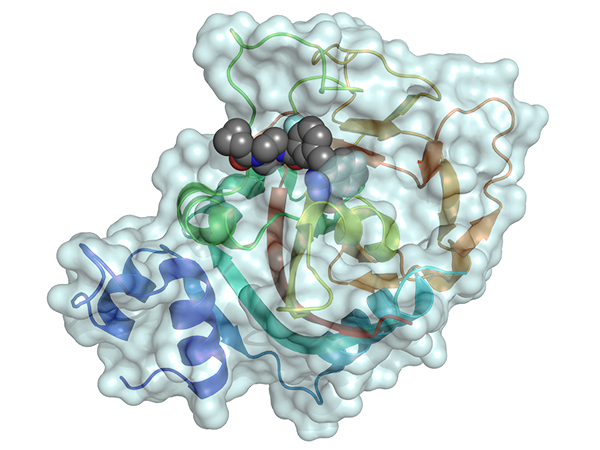FDA Approves Olaparib as Maintenance Therapy for Recurrent Ovarian Cancer
, by NCI Staff
The Food and Drug Administration (FDA) has granted regular approval to olaparib tablets (Lynparza®) as maintenance treatment for patients with recurrent epithelial ovarian, fallopian tube, or primary peritoneal cancer who are having partial or complete responses to platinum-based chemotherapy. Patients can use the drug regardless of whether they have inherited mutations in a BRCA gene.
This maintenance therapy is given to help keep cancer from growing or coming back after it has been reduced in size or disappeared following the therapy for recurrent disease.
Olaparib is a member of a class of drugs known as PARP inhibitors, which block the actions of PARP proteins. These proteins help repair damaged DNA in cells, and inhibiting PARP proteins can lead to further DNA damage and cell death.
“Olaparib is another advance for women with ovarian cancer, and this approval broadens the potential use of PARP inhibitors,” said Elise Kohn, M.D., head of Gynecologic Cancer Therapeutics in NCI’s Division of Cancer Treatment and Diagnosis. “These drugs are an important new class of agents.”
Another Choice for Doctors and Patients
The approval will give doctors and patients with ovarian cancer a choice, Dr. Kohn noted. Another PARP inhibitor, niraparib (Zejula™), was approved earlier this year as maintenance therapy for patients with recurrent ovarian cancer whether or not they carry BRCA gene mutations.
In 2014, FDA approved olaparib capsules for the treatment of advanced ovarian cancer in patients with inherited BRCA mutations who have received three or more types of chemotherapy. Olaparib tablets are now approved for this population of patients.
The capsules will be discontinued in the United States, but FDA said that capsules will be available (through the Lynparza Specialty Pharmacy Network) for patients currently receiving them for the 2014 indication. Olaparib tablets and capsules are not interchangeable, FDA noted in a press release.
“The capsules are only 50mg each, so patients take a total of 16 per day,” said Dr. Kohn. “The tablets, which are smaller in size, are 100mg or 150mg, so patients only have to take 4 or 6 per day.”
Clinical Trial Results
The approval of olaparib for maintenance treatment was based on two randomized clinical trials involving patients with recurrent ovarian cancer.
In the Study 19 trial, 265 patients were randomly assigned to receive olaparib capsules or a placebo, including 136 patients who had a mutation in a BRCA gene. The estimated median progression-free survival (PFS) was 8.4 months for the olaparib group and 4.8 months for the placebo group. For those with mutations in a BRCA gene, the median PFS was 11.2 versus 4.3 months for placebo.
In the trial, maintenance treatment with olaparib reduced the risk of disease progression or death by 65% versus placebo for women with ovarian cancer, regardless of the status of the BRCA genes.
The SOLO-2 trial was conducted in part to confirm findings from the Study 19 trial. In the SOLO-2 study, 295 patients with inherited BRCA gene mutations were randomly assigned to receive olaparib tablets or a placebo.
The estimated median PFS was 19.1 months for the olaparib group and 5.5 months for the placebo group. In this trial, maintenance olaparib reduced the risk of disease progression or death by 70% compared with placebo for patients with relapsed ovarian cancer and a BRCA gene mutation.
Maintenance treatment with olaparib tablets “was well tolerated, with no new safety signals and manageable toxicities,” the study authors noted. Anemia, fatigue, and neutropenia were among the most common side effects in the olaparib group. The most common serious adverse events in these patients were anemia, abdominal pain, and intestinal obstruction.
Although the SOLO-2 results showed a “marked delay of tumor progression,” Dr. Kohn said, it’s too early to know whether the maintenance treatment helps patients live longer.
